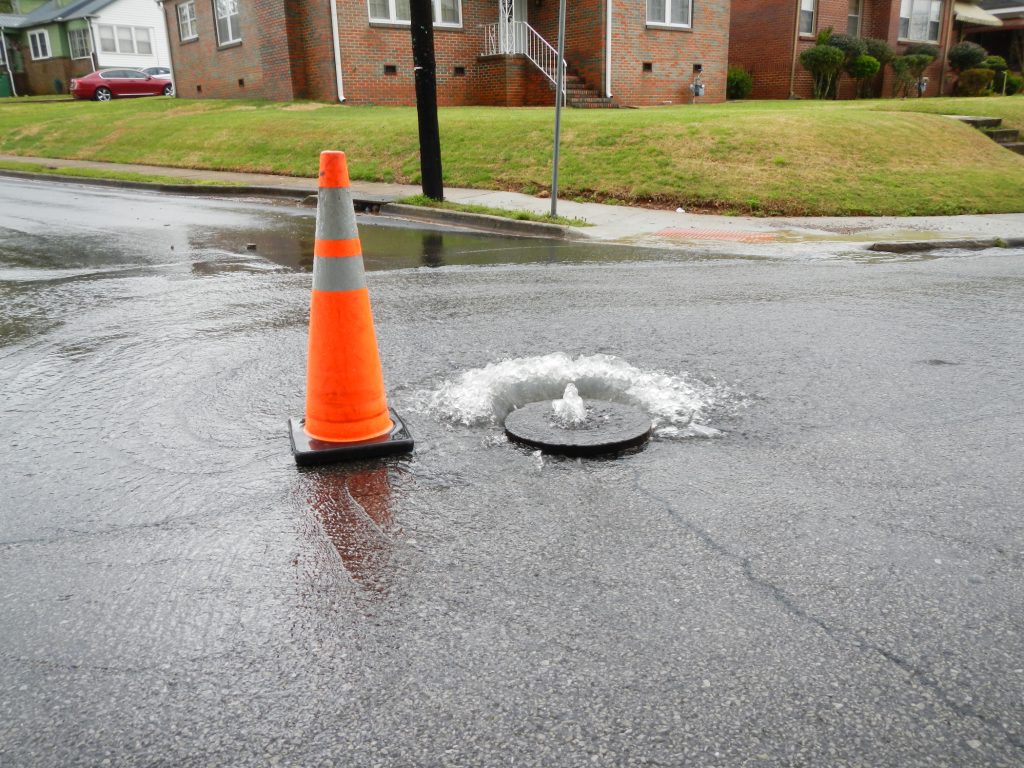Sewage Notification
Alabama Groups Request Better Public Notification of Sewage Spills
Statewide Petition Pushes for Meaningful Process to Warn and Protect Public
For Immediate Release: March 7, 2017
Contact:
Nelson Brooke, Black Warrior Riverkeeper: 205-458-0095, [email protected]
Eva Dillard, staff attorney, Black Warrior Riverkeeper: 205-458-0095, [email protected]
Montgomery, AL— Today, nine conservation groups from across the state petitioned Alabama’s Environmental Management Commission to write regulations requiring sewage treatment facilities to notify the public when they are exposed to sewage spills and overflows.
Recent high profile events, like Northport’s major sewage overflows which put up to 4,000,000 gallons of sewage into the Black Warrior River right before the busy July 4, 2016 weekend, have highlighted this pressing problem. Other than Northport’s lightly followed Facebook page, there was no public notification of the large scale spill into the river nor was there anyone staffing the city’s 24-hour emergency hotline who could tell the public about the spill or the consequences to public health.
The groups contend that citizens have a fundamental right to know when their local streams and rivers are unsafe for swimming, fishing and other recreation to protect themselves and their families from the serious consequences of sewage pollution. Submitting the petition were Alabama Rivers Alliance, Black Warrior Riverkeeper, Cahaba Riverkeeper, Choctawhatchee Riverkeeper, Coosa Riverkeeper, Friends of Hurricane Creek, Little River Waterkeeper, Mobile Baykeeper, and Tennessee Riverkeeper.
Although wastewater treatment plants are required by Alabama law to “immediately” notify the public of sewage spills, there are no regulations which specify a time, plan or even a bare minimum level of notification. According to Nelson Brooke, Black Warrior Riverkeeper, “Sadly, raw sewage often spills out of manholes and pumping stations before ever reaching your local wastewater treatment plant for proper treatment, which means your local stream, creek, river, or lake may have untreated sewage in it. Operators of treatment plants in Alabama must do a better job of adequately notifying the public when sewage spills happen, especially so that folks who are swimming, fishing, and recreating downstream do not put their health at risk.”
Sewer overflows pose a substantial public health threat to citizens. According to the EPA Experts Workshop on Public Health Impacts of Sewer Overflows, “Sewer overflows are a human health issue because they can create the potential for exposure to disease-causing pathogens, including protozoa, bacteria, and viruses. Activities involving exposure to [sewage] contaminants through swimming or other contact can lead to infectious diseases such as hepatitis, gastrointestinal disorders, dysentery, and swimmer’s ear. Other forms of bacteria can cause typhoid, cholera, and dysentery. Human health also can be impacted from ingesting fish or shellfish contaminated by [sewage] discharges.”
Alabama law allows “any person” to petition the Environmental Management Commission to engage in rulemaking. Granting a petition for rulemaking does not mean that a proposed rule will be adopted; it only means that public comment on the proposed rule will be solicited and a decision whether to adopt the proposed rule will be made.
“With another recreation season almost upon us, the petitioners look forward to working productively with the Commission to ensure that the petition process yields the strongest, most comprehensive public notification rule possible,” said Eva Dillard, Black Warrior Riverkeeper’s staff attorney.
For a copy of the petition, click here.
For Nelson Brooke’s high resolution photo of sewage flowing from a Birmingham manhole, entering a nearby storm drain, and eventually ending up in Village Creek, click here.
Demand Public Notification of Sewage Spills! Click here to TAKE ACTION: blackwarriorriver.org/sewage-notification-action-alert
###
Black Warrior Riverkeeper is a citizen-based nonprofit organization whose mission is to protect and restore the Black Warrior River and its tributaries. We are advocates for clean water, wildlife habitat, and recreational opportunities throughout the Black Warrior River watershed. To learn about the river and threats to it, visit BlackWarriorRiver.org.

Sewage overflows out of a manhole in the middle of a Birmingham street, and flows down a nearby storm drain, eventually ending up in Village Creek. Photo by Nelson Brooke.












